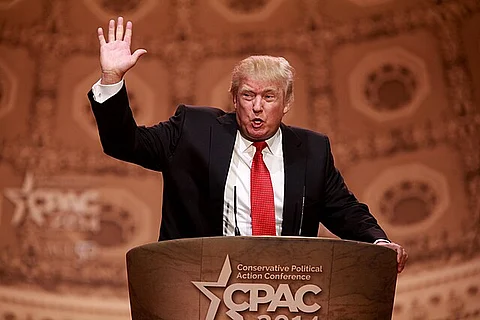

The U.S. State Department has reaffirmed President Donald Trump’s readiness to mediate the Kashmir dispute between India and Pakistan, citing his consistent efforts to resolve "generational conflicts" worldwide. Spokesperson Tammy Bruce emphasized Trump’s unique diplomatic approach during a press briefing, noting, "President Trump has been the only one to bring certain people to the table to have conversations that nobody thought were possible". While Bruce declined to detail specific plans, she stressed that Trump’s interest in facilitating Kashmir negotiations aligns with his broader conflict-resolution ethos and added, "It shouldn’t surprise anyone that he’d want to manage something like that".
The statement follows high-level visits by both Pakistani and Indian delegations to Washington last week. Pakistan’s delegation, led by PPP Chairman Bilawal Bhutto-Zardari, met with Under Secretary for Political Affairs Allison Hooker. Discussions centered on U.S. support for maintaining the India-Pakistan ceasefire, counterterrorism cooperation, and Islamabad’s concerns over Indian military actions and the suspension of the Indus Waters Treaty. Concurrently, an Indian parliamentary delegation led by Congress MP Shashi Tharoor held talks with Deputy Secretary Landau, who reiterated U.S. backing for India’s counterterrorism efforts and strategic partnership.
India swiftly rebuffed the mediation offer, with External Affairs Ministry Spokesperson Randhir Jaiswal restating that Kashmir remains a strictly bilateral issue under the 1972 Tashkent Agreement. He emphasized, "Any issues pertaining to the union territory of Jammu and Kashmir have to be addressed by India and Pakistan bilaterally". Conversely, Pakistan welcomed Trump’s involvement. Bilawal Bhutto-Zardari urged the U.S. to "bring India to the negotiating table," insisting Kashmir must be central to any dialogue. This divergence underscores deepening diplomatic fissures, exacerbated by Trump’s recent praise for Pakistan’s "strong leadership" during tensions.
The mediation discourse follows the May 10 ceasefire announced by Trump after a brief but intense military standoff. While Trump credited U.S. diplomacy for halting hostilities, India contested this narrative. Foreign Secretary Vikram Misri attributed the de-escalation to India’s "Operation Sindoor," which allegedly delivered a "decisive blow" to Pakistani forces. Opposition figures in India, including Congress leader Rahul Gandhi, accused Prime Minister Narendra Modi of capitulating to U.S. pressure—a claim Modi’s government denies.
With Pakistan mobilizing global support for Kashmir-focused talks and India resisting third-party involvement, the stalemate threatens fragile peace. Bruce’s hope that Kashmir "can be resolved before the President leaves office" hints at accelerated U.S. efforts, though India’s entrenched position remains a hurdle. The situation is further complicated by Trump’s assertion that resolving the "thousand years" conflict is feasible—a dramatic framing that energizes Islamabad but unsettles New Delhi.